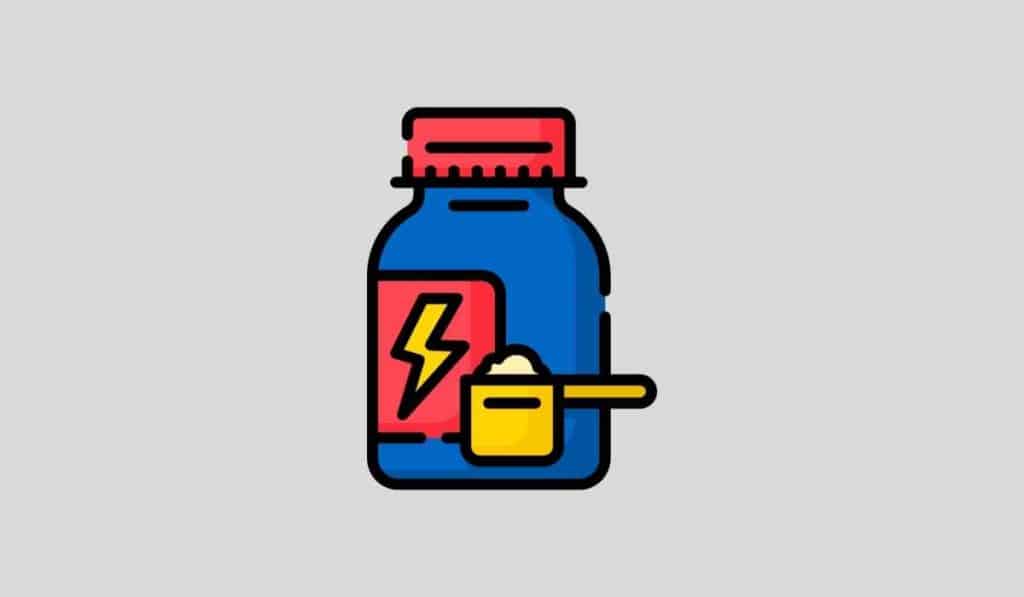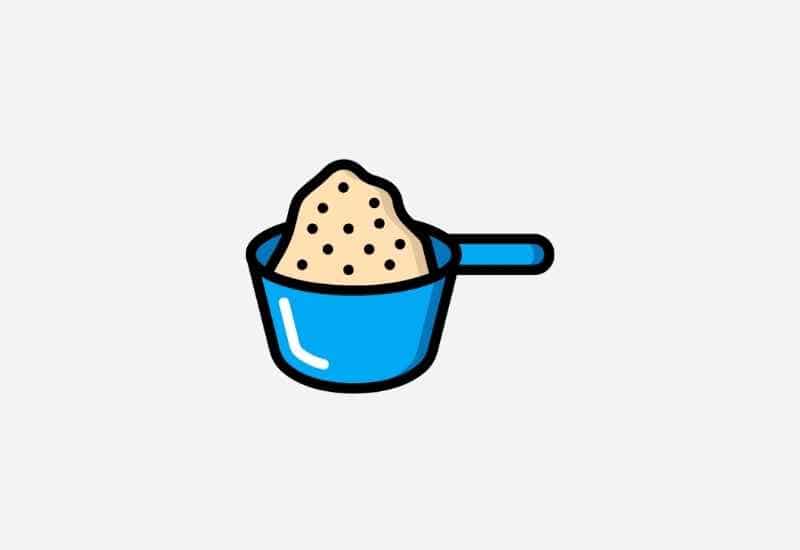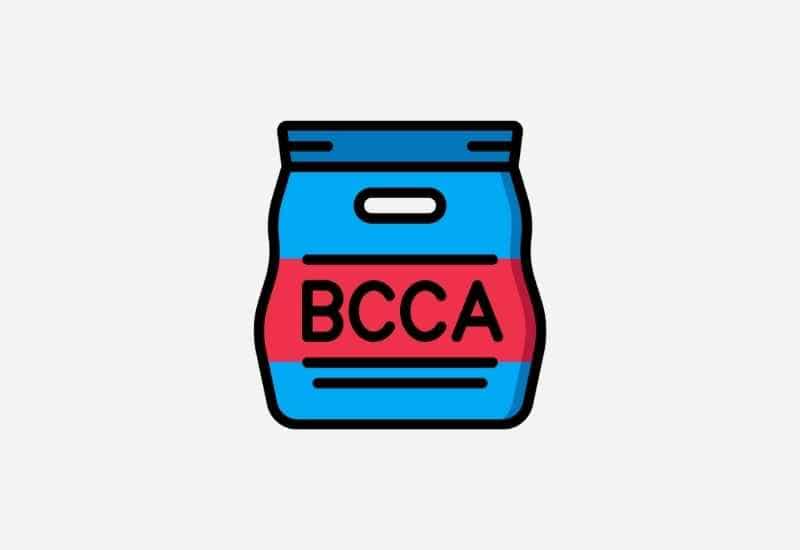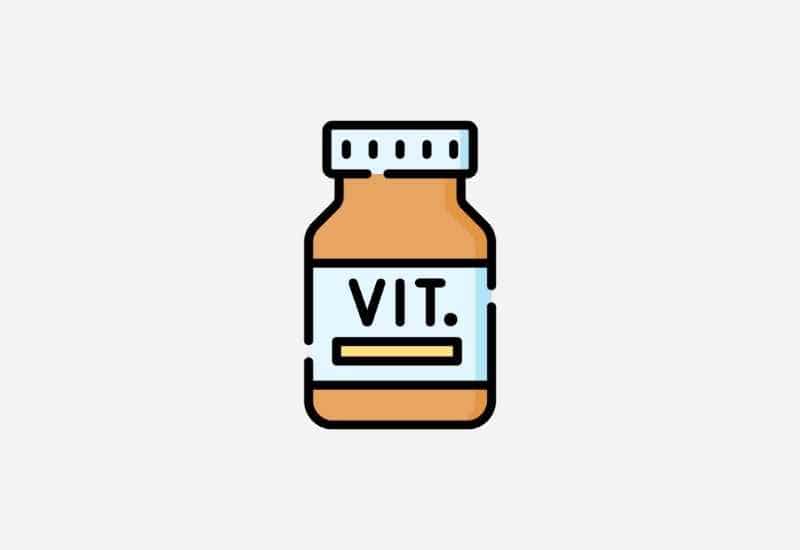Looking to crank up muscle mass and strength through bulking? Here is a list of the essential supplements you should use to maximize muscle growth and performance in the gym.

When researching how to bulk, one of the most crucial things to study up on is how to ensure optimum nutrition while still getting enough calories in your daily diet.
After all, it’s not that tough to get enough calories every day—all you have to do is eat more calorie-rich foods, which typically means foods high in fats and sugar, AKA junk food.
When you do this (a practice called “dirty bulking”), you put your body at risk of nutrient deficiencies because you’re just not getting enough healthy food.
You are also more likely to end up feeling sluggish and lethargic during your workouts.
That’s not ideal!
Below, we’re going to talk about the best supplements for bulking up like a pro—not just packing on the pounds of muscle, but also maintaining healthy body function in the process.
By taking the approach below, you’ll come out the other side of the process exponentially healthier, with more muscle mass and strength, and ready to cut.
Let’s do this.
The Bulking Phase – Overview
I want to take a moment here to explain the cutting vs bulking difference, and how going about the bulking phase the smart way can make it much easier to cut after bulking.
“Bulking” refers to gaining weight (both lean muscle and extra fat mass) by eating an excess of food—anywhere from 350 to 1000 calories per day, depending on your goals.
There are two approaches to bulking:
- Clean bulking, or gaining weight by only eating clean foods and maintaining a healthy macronutrient balance. (See more on how to clean bulk here.)
- Dirty bulking, or gaining weight by eating a lot of calorie-rich foods, even if they are low in nutrients (also known as junk food).
Dirty bulking works significantly faster, but it can have more serious health repercussions in the long term.
Clean bulking, also known as lean bulking, while slower, is the healthier solution and will ultimately make it easier for you to turn that extra weight into muscle.
For the purposes of this article, our focus will be on choosing the best supplements that will help to optimize a clean bulking approach. Our recommendations are all intended to maximize nutrition and ensure healthy food intake while still bulking up.
Best Supplements for Crushing the Bulk Phase
While there are a TON of different kinds of bulking supplements out there, these are the essentials:
Supplement #1: Protein Powder
Protein powder is, hands down, the best supplement for bulking up.
It’s essentially a concentrated dose of easily absorbed protein that contains very little additional nutrients (fats or sugars) that could slow down the digestion process.
Thanks to this, you get a rapid infusion of amino acids critical for repair, muscle growth, and post-workout recovery.

There are a few types of protein powder to consider:
- Whey protein is quick-acting and easily digested1, and it’s great for providing immediate energy supply following a workout. It also perform slightly better for muscle growth compared to other types of protein2.
- Casein protein is slower-acting, meaning it takes longer for your body to break it down, and is released more slowly into your bloodstream. However, thanks to this, it can supply a steady stream of amino acids for hours after workout. Consider taking a casein shake at night before bed as it will be fully ingested and absorbed overnight, speeding recovery3. Casein is one of the essential supplements for sore muscles.
- Egg protein is somewhere in the middle, not quite as fast-acting as whey protein but not as slowly digested/released as casein protein. It’s a great source of all nine essential amino acids, along with other critical nutrients.
- Plant-based proteins like pea protein, brown rice protein, and hemp protein are all rich in amino acids and easily digestible, though they often have to be mixed with other proteins in order to provide all nine amino acids needed to build muscle.
Ideally, you want to add AT LEAST one serving of protein powder to your daily meal plan, though you can add more in order to maximize lean protein intake.
Pro Tip: One of my favorite tips for taking protein when cutting is taking a protein shake around 15-30mins before a meal. The satiation effects of protein will help you maintain a state of caloric deficit when cutting by taking away some of the ravenous meal-time cravings.
Protein powder isn’t nutritionally rich or diverse enough to serve as a meal replacement, but it’s a great way to ensure you’re hitting that recommended 40% protein intake without overdoing it on the fat found in other animal-based protein sources.
Protein shakes are also quick and easy to take, making them an excellent convenience option, as well.
Supplement #2: BCAAs
BCAAs, or branched-chain amino acids, are made up of valine, leucine, and isoleucine, the three amino acids that account for the majority of what your body uses to produce ATP energy.
These are basically just a concentrated dose of the most important amino acids and help to maximize post-workout recovery4.
They’re also excellent for encouraging the formation of lean muscle mass and turning your extra weight into muscles.

BCAAs can also reduce soreness5 and help you maximize performance in the gym by reducing performance fatigue, giving you a better bang for your buck each time you hit the squat rack6.
Take note: most protein powders do include a measure of BCAAs. However, to make the most of your bulking phase, it’s a good idea to add these specific amino acids into your diet via a BCAA supplement.
Supplement #3: Creatine
There’s oddly still a lot of confusion around creatine, despite it being one of the most commonly studied supplements on the planet.
Creatine is an amazing supplement to boost the levels of the ATP energy your muscles specifically need in order to function and grow.
Creatine has been shown to increase muscle strength7, accelerate size gains, and even increases resistance to fatigue during your training. It can even increase the levels of IGF-18, one of the hormones that plays a role in your muscle growth.
Adding a creatine supplement to your bulking phase is an excellent way to accelerate gains and maximize the results of both your diet and workouts.
Despite some of the misconceptions that surround creatine, it’s exceptionally safe9, with some studies reporting no side-effects after a full five years of use!
Supplement #4: Weight Gainers
A “weight gainer” supplement is specifically formulated to increase your caloric intake and provide a specific balance of nutrients.
Typically, they’ll contain anywhere between 20 and 60 grams of protein, along with 75 to 300 grams of carbohydrates.
By providing such a massive dose of nutrients, they ensure you are consuming enough calories to pack on the extra weight—but doing so in a healthy, nutrient-balanced manner.
Weight gainer supplements are really only recommended for people who have a hard time consuming enough food during the day to hit their increased calorie intake targets.
If you only have time for 1-2 meals at home and need something to take with you to the office, a weight gainer supplement is a great alternative to bringing a massive stack of Tupperware containers filled with 1000+ calories’ worth of food.
Supplement #5: Beta Alanine
Beta alanine is one of the most crucial of the non-essential amino acids.
Though it doesn’t directly contribute to building muscle, what it does is pair with histidine (another amino acid found in your food) to produce carnosine, an amino acid critical for the function of your heart, brain, internal organs, and muscles.
Carnosine is particularly important for your bulking efforts, because it enables your muscle fibers to contract (during your exercises for bulking) more efficiently and with more force, while also staving off muscle fatigue.
Beta alanine can also help to increase lean muscle mass and facilitate the elimination of body fat, making it crucial during both the bulking and cutting phases.
Supplement #6: ZMA
ZMA stands for “zinc and magnesium aspartate”, two minerals that play a significant role in your health during the bulking process.
ZMA (which usually includes a metabolic-boosting dose of Vitamin B6) will help to aid in sleep and maintain healthy levels of IGF-1 and testosterone, both hormones necessary for bulking up.
Athletes who train at very high intensities tend to experience drops in these two growth hormones, but ZMA helps to counteract that drop and maintain healthy endocrine levels10.
Thanks to ZMA, your body will be more effective at building muscle (thanks to your workouts and bulking diet) because it has sufficient testosterone and IGF-1 to do so.
Supplement #7: Multi-Vitamin
If you’re clean bulking, you’ll likely be prioritizing quality nutrition and eating nutrient-dense foods.
However, it’s still a good idea to add a multi-vitamin supplement to your diet because it ensures that you’re getting enough of the micronutrients (vitamins, minerals, and antioxidants) that keep your body healthy and functioning during this period of intense stress.

Any nutrient deficiency can hamper your muscle-building efforts or lead to negative health consequences, so it’s always a good idea to ensure you’re getting the right balance of nutrients (both macros and micros) whenever putting your body through any sort of intense diet or training regimen.
Bulking Supplements — FAQs
How much faster can supplements help me bulk?
Supplements can be absolutely game-changing when it comes to bulking up!
If you’re trying to bulk up through only eating clean, you may find it difficult to consume sufficient macro and micronutrients to gain weight.
Typically, it’s difficult to get enough protein without also consuming an excess of carbohydrates (found in plant-based proteins) and fats (found in animal proteins). By adding protein powders and BCAAs, you can optimize your protein intake while still keeping your macros balanced.
With other supplements—such as beta alanine or ZMA—you’re consuming specific nutrients that help to maximize muscle gains.
These nutrients are typically available in only small quantities in the food you eat, so consuming more of them via a supplement ensures you get larger-than-average doses in order to see greater-than-average results.
What bulking supplement is the closest thing to steroids?
Creatine functions similar to anabolic steroids—increasing ATP energy and raising IGF-1 levels—but it’s much safer and legal everywhere. If you’re seriously considering steroids, it’s a much better choice to try creatine first.
There are also plenty of steroid alternatives on the market that use all-natural ingredients to simulate the anabolic benefits of steroids.
Crazy Bulk’s Bulking Stack, which includes a variety of muscle-building supplements, mimics the effects of steroids without the whole being “illegal” and unsafe to use aspects.
Additionally, D-Bal, another steroid alternative, this time to Dianabol, one of the steroids that bodybuilders still use and abuse to this day, mimics the “real” version using all-natural ingredients.
While there are no supplements that will give you the EXACT benefits of anabolic steroids, there are more than a few supplements that can come close!
The Bottom Line
Ultimately, supplements are designed to “supplement” your diet, to help you consume sufficient nutrients to keep your body healthy during periods of intense exercise, dieting, or stress—which, let’s be honest, both bulking and cutting are!
The supplements recommended above can maximize your intake of the nutrients critical to maintaining good health while still keeping your diet in check.
You’ll find it’s much easier to stick to an eating plan when you can add a few good supplements into your diet, and as a result, you’ll bulk up more effectively and safely.
If that’s not an amazing reason to include supplements into your lifestyle, I don’t know what is!